Current fellows
The cornerstone of global dis:connect is the fellowship programme, in which approximately ten scholars come to Munich each year. They research dis:connectivity on site and in close contact with the directors and their peers. Fellows also have the opportunity to host workshops on the topics of their research.
Short-term scholarships furnished by the Munich Centre for Global History supplement this programme. Actively integrating the epistemic potential of the arts is vitally important to global dis:connect because they can offer counternarratives to hegemonic discourses, to supposed certainties and to entrenched viewpoints (including scholarly ones). The opportunities — and risks — of artistic research and its critical position towards society and scholarship have barely been incorporated into academic research, methods, practices and results.
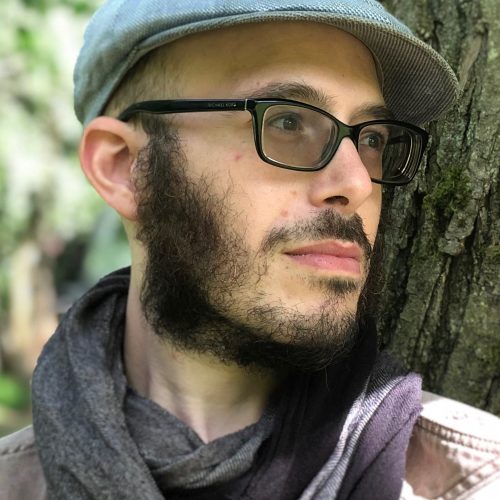
roii ball
Roii Ball is a social historian of 19th and 20th-century Germany and Central Europe and their colonial entanglements. He is a postdoctoral lead researcher at the Religion and Politics Cluster of Excellence at the University of Münster. Ball earned his PhD from the University of California, Los Angeles in 2021 with a dissertation on the social dynamics and bureaucratic practices of German colonisation in the Polish provinces of Prussia before WWI (Advisor: David Sabean).
Roii’s work focuses on family and kinship to explore histories of colonisation and their intersection with empire-making and nation-making. His research interests include the history of knowledge, history of childhood, environmental history, and digital history. He has held fellowships at the University of Cologne, the German Historical Institute in Warsaw, and the Leibnitz Institute for European History in Mainz.
Click HERE for a list of publications.
Click HERE to email Roii.

roii ball
Click HERE to email Roii.
Click HERE for a list of publications.
Roii Ball is a social historian of 19th and 20th-century Germany and Central Europe and their colonial entanglements. He is a postdoctoral lead researcher at the Religion and Politics Cluster of Excellence at the University of Münster. Ball earned his PhD from the University of California, Los Angeles in 2021 with a dissertation on the social dynamics and bureaucratic practices of German colonisation in the Polish provinces of Prussia before WWI (Advisor: David Sabean).
Roii’s work focuses on family and kinship to explore histories of colonisation and their intersection with empire-making and nation-making. His research interests include the history of knowledge, history of childhood, environmental history, and digital history. He has held fellowships at the University of Cologne, the German Historical Institute in Warsaw, and the Leibnitz Institute for European History in Mainz.

Shane Boyle
Shane Boyle is a senior lecturer in the School of English and Drama at Queen Mary University of London. His research focuses on logistics, Marxism, and performance history. He has published widely on the political economy of art, including the book The Arts of Logistics: Artistic Production in Supply Chain Capitalism (Stanford University Press 2024). Shane holds a PhD in performance studies from UC Berkeley and co-edited Postdramatic Theatre and Form (Bloomsbury 2019). He is also a member of the Performance and Political Economy research collective.
As a fellow at global dis:connect, Shane will write a monograph on how the art world has become entangled in the planetary mine of supply chain capitalism. In addition to detailing the ways that contemporary museums, galleries and theaters depend on rare metals and mineral resources, Shane’s research will survey the efforts of artists since the logistics revolution to blockade and sabotage extractive infrastructures.
Click HERE for a list of publications.
Click HERE to email Shane.

Shane Boyle
Click HERE to email Shane.
Click HERE for a list of publications.
Shane Boyle is a senior lecturer in the School of English and Drama at Queen Mary University of London. His research focuses on logistics, Marxism, and performance history. He has published widely on the political economy of art, including the book The Arts of Logistics: Artistic Production in Supply Chain Capitalism (Stanford University Press 2024). Shane holds a PhD in performance studies from UC Berkeley and co-edited Postdramatic Theatre and Form (Bloomsbury 2019). He is also a member of the Performance and Political Economy research collective.
As a fellow at global dis:connect, Shane will write a monograph on how the art world has become entangled in the planetary mine of supply chain capitalism. In addition to detailing the ways that contemporary museums, galleries and theaters depend on rare metals and mineral resources, Shane’s research will survey the efforts of artists since the logistics revolution to blockade and sabotage extractive infrastructures.

Claiton Marcio da Silva
Claiton Marcio da Silva is an associate professor of history at the Universidade Federal da Fronteira Sul (UFFS), Brazil, with a PhD in the history of science. In 2023, he published The Making of Modern Agriculture: Nelson Rockefeller’s American International Association for Economic and Social Development (AIA) in Latin America (1946-1968), addressing U.S. private diplomacy during the Cold War. He also co-edited The Age of the Soybean (White Horse Press, 2022) with Claudio de Majo.
At global dis:connect, Claiton Marcio Is exploring soybean production and exports as a fundamental dis:connectivity in globalisation, with a focus on political and socioenvironmental aspects. While historiography on the topic approaches these experiences of technological innovation and deforestation in a disconnected way, Claiton is proposing a transdisciplinary ethno-historical approach, connecting global experiences and arguing that the detours in this process (cheating, smuggling of inputs, etc.) are fundamental, not exceptional, parts of the process.
Click HERE for a list of publications.
Click HERE to email Claiton.

Claiton Marcio da Silva
Click HERE to email Claiton.
Click HERE for a list of publications.
Claiton Marcio da Silva is an associate professor of history at the Universidade Federal da Fronteira Sul (UFFS), Brazil, with a PhD in the history of science. In 2023, he published The Making of Modern Agriculture: Nelson Rockefeller’s American International Association for Economic and Social Development (AIA) in Latin America (1946-1968), addressing U.S. private diplomacy during the Cold War. He also co-edited The Age of the Soybean (White Horse Press, 2022) with Claudio de Majo.
At global dis:connect, Claiton Marcio Is exploring soybean production and exports as a fundamental dis:connectivity in globalisation, with a focus on political and socioenvironmental aspects. While historiography on the topic approaches these experiences of technological innovation and deforestation in a disconnected way, Claiton is proposing a transdisciplinary ethno-historical approach, connecting global experiences and arguing that the detours in this process (cheating, smuggling of inputs, etc.) are fundamental, not exceptional, parts of the process.

Arnika Fuhrmann
Arnika Fuhrmann is an interdisciplinary scholar of Thailand working at the intersections of the country’s aesthetic and political modernities. She is the author of Ghostly Desires: Queer Sexuality and Vernacular Buddhism in Contemporary Thai Cinema and Teardrops of Time: Buddhist Aesthetics in the Poetry of Angkarn Kallayanapong. She is currently a professor of Asian Studies and Comparative Literature at Cornell University.
Digital futures: Asian media temporalities and the expansion of the sphere of politics investigates the temporal properties of the digital and draws the counterintuitive properties of digital mediation in relation to the dis:connectivity of a global gaze on Asian political spheres. It examines the temporal efficacy of features unique to the digital sphere and inquires into the counterintuitive ways in which contexts of political constraint shape and facilitate political expression. Digital futures thereby interrogates assumptions about the teleologies of progressive politics and investigates digital media across political fields and national boundaries in a highly globalised Asia.
Click HERE for a list of publications.
Click HERE to email Arnika.

Arnika Fuhrmann
Click HERE to email Arnika.
Click HERE for a list of publications.
Arnika Fuhrmann is an interdisciplinary scholar of Thailand working at the intersections of the country’s aesthetic and political modernities. She is the author of Ghostly Desires: Queer Sexuality and Vernacular Buddhism in Contemporary Thai Cinema and Teardrops of Time: Buddhist Aesthetics in the Poetry of Angkarn Kallayanapong. She is currently a professor of Asian Studies and Comparative Literature at Cornell University.
Digital futures: Asian media temporalities and the expansion of the sphere of politics investigates the temporal properties of the digital and draws the counterintuitive properties of digital mediation in relation to the dis:connectivity of a global gaze on Asian political spheres. It examines the temporal efficacy of features unique to the digital sphere and inquires into the counterintuitive ways in which contexts of political constraint shape and facilitate political expression. Digital futures thereby interrogates assumptions about the teleologies of progressive politics and investigates digital media across political fields and national boundaries in a highly globalised Asia.
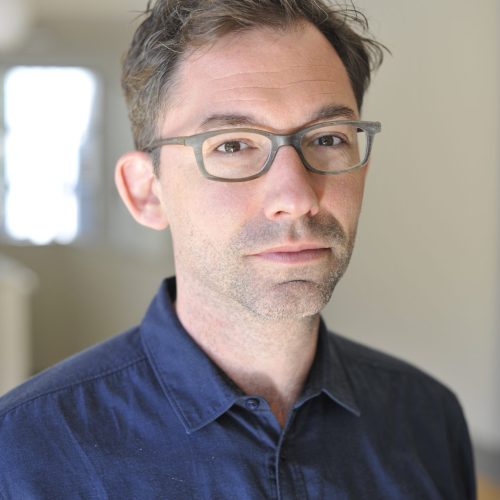
Michael Goebel
Michael Goebel is the Einstein Professor of Global History and co-director of the Frankreich-Zentrum at Freie Universität Berlin. He earned his Ph.D. from University College London (2006) and in 2018–21 was the Pierre du Bois Chair Europe and the World at the Geneva Graduate Institute. Originally an intellectual historian of Latin America, his 2015 book Anti-Imperial Metropolis awakened a growing interest in urban history and, more recently, social and economic history. He is currently the principal investigator of the SNSF-funded project Patchwork Cities.
During his fellowship at gd:c, he’s investigating the interrelationship between globalisation and inequality in Latin American and Southeast Asian port cities, particularly in the late-nineteenth century. His key interest is how the global development of capitalism and imperialism intersected with local socio-economic transformations in urban space, focusing on the interplay between ethnicity, migration and real-estate markets. His research thus connects to scholarship about segregation, but seeks to expand its purview beyond its customary focus on the North Atlantic.
Click HERE for a list of publications.
Click HERE to email Michael.

Michael Goebel
Click HERE to email Michael.
Click HERE for a list of publications.
Michael Goebel is the Einstein Professor of Global History and co-director of the Frankreich-Zentrum at Freie Universität Berlin. He earned his Ph.D. from University College London (2006) and in 2018–21 was the Pierre du Bois Chair Europe and the World at the Geneva Graduate Institute. Originally an intellectual historian of Latin America, his 2015 book Anti-Imperial Metropolis awakened a growing interest in urban history and, more recently, social and economic history. He is currently the principal investigator of the SNSF-funded project Patchwork Cities.
During his fellowship at gd:c, he’s investigating the interrelationship between globalisation and inequality in Latin American and Southeast Asian port cities, particularly in the late-nineteenth century. His key interest is how the global development of capitalism and imperialism intersected with local socio-economic transformations in urban space, focusing on the interplay between ethnicity, migration and real-estate markets. His research thus connects to scholarship about segregation, but seeks to expand its purview beyond its customary focus on the North Atlantic.
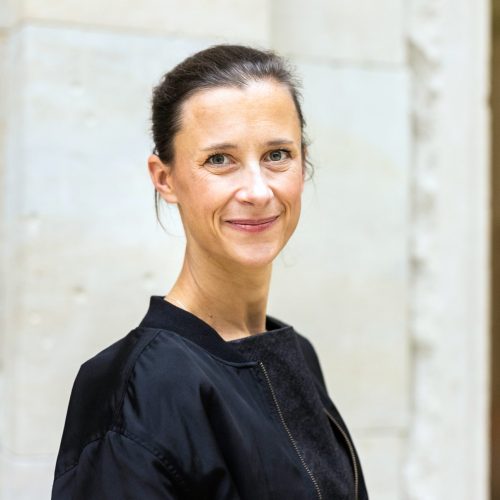
Valeska Huber
Valeska is a professor at the University of Vienna. She has led an Emmy Noether Research Group and has been a fellow at the German Historical Institute London. She is particularly interested in the mutual interdependence of opening and closure. More specifically, she has worked on mobility and migration, on epidemics and international health policy, and on education and literacy training. She has authored Channelling Mobilities: Migration and Globalisation in the Suez Canal Region and co-edited Global Publics: Their Power and their Limits.
Valeska is currently focusing on global publics – their power, reach, and limits. During her fellowship at global dis:connect, she will work on a monograph about the 20th-century dream of universal literacy, tracing the Each One Teach One method propagated by US missionary Frank C. Laubach and applied around the globe from the Philippines to Cuba and Brazil.
Click HERE for a list of publications.
Click HERE to email Valeska.

Valeska Huber
Click HERE to email Valeska.
Click HERE for a list of publications.
Valeska is a professor at the University of Vienna. She has led an Emmy Noether Research Group and has been a fellow at the German Historical Institute London. She is particularly interested in the mutual interdependence of opening and closure. More specifically, she has worked on mobility and migration, on epidemics and international health policy, and on education and literacy training. She has authored Channelling Mobilities: Migration and Globalisation in the Suez Canal Region and co-edited Global Publics: Their Power and their Limits.
Valeska is currently focusing on global publics – their power, reach, and limits. During her fellowship at global dis:connect, she will work on a monograph about the 20th-century dream of universal literacy, tracing the Each One Teach One method propagated by US missionary Frank C. Laubach and applied around the globe from the Philippines to Cuba and Brazil.

Andrea Azizi Kifyasi
Andrea Azizi Kifyasi is a lecturer and researcher at the Department of History, University of Dar es Salaam, Tanzania. Kifyasi specialises in medical history and is interested in China’s medical aid to post-colonial African countries and medical diplomacy. He earned his PhD at the Department of History, University of Basel, in 2021. His latest journal article examined the effectiveness of exchanges of medical knowledge across the Global South using case studies of the Chinese-funded medical projects in Tanzania from 1968 to the 1990s.
At global dis:onnect, Kifyasi is studying the history of China’s medical assistance in post-colonial Tanzania, particularly the implications of Chinese medical aid in the development of Tanzania’s health sector under the discourse of South-South cooperation. He’s exploring how China’s medical assistance reflected the Southern agenda of promoting self-reliance and lessening Northern dominance in medical aid and knowledge in the South. The ensuring book will touch on South-South cooperation as well as economic, political and knowledge entanglements in bilateral relationships among countries of the Global South.
Click HERE for a list of publications.
Click HERE to email Andrea.

Andrea Azizi Kifyasi
Click HERE to email Andrea.
Click HERE for a list of publications.
Andrea Azizi Kifyasi is a lecturer and researcher at the Department of History, University of Dar es Salaam, Tanzania. Kifyasi specialises in medical history and is interested in China’s medical aid to post-colonial African countries and medical diplomacy. He earned his PhD at the Department of History, University of Basel, in 2021. His latest journal article examined the effectiveness of exchanges of medical knowledge across the Global South using case studies of the Chinese-funded medical projects in Tanzania from 1968 to the 1990s.
At global dis:onnect, Kifyasi is studying the history of China’s medical assistance in post-colonial Tanzania, particularly the implications of Chinese medical aid in the development of Tanzania’s health sector under the discourse of South-South cooperation. He’s exploring how China’s medical assistance reflected the Southern agenda of promoting self-reliance and lessening Northern dominance in medical aid and knowledge in the South. The ensuring book will touch on South-South cooperation as well as economic, political and knowledge entanglements in bilateral relationships among countries of the Global South.
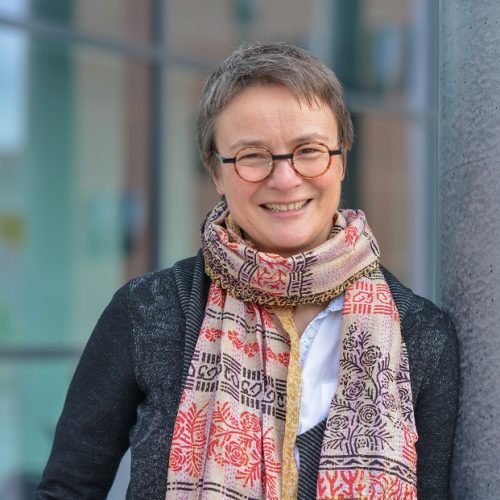
Yvonne Kleinmann
Yvonne Kleinmann is a professor of Eastern European history and director of the Aleksander Brückner Center for Polish Studies at Halle University. Her research focuses on Russian imperial history in comparative perspective, Jewish history of Eastern Europe, and Polish history through the ages. She is especially interested in the intersections between historiography, philology, ethnography and law. In her publications she has explored migrations, interreligious relations, urban history, legal history, anthropology and the history of knowledge.
In her gd:c project Communicating Constitutions: A Cultural and Entangled History of Poland’s Basic Orders, she is analysing Polish constitutional history from the 14th century to the present from the angle of cultural history and (transnational) entanglement. The core question is how to narrate the constitutional history of a community with many political discontinuities and dependencies. Drawing on the example of Poland, the project offers new approaches to constitutional history from the perspectives of imperial history, biographical research, regional history, gender studies, law and literature.
Click HERE for a list of publications.
Click HERE to email Yvonne.

Yvonne Kleinmann
Click HERE to email Yvonne.
Click HERE for a list of publications.
Yvonne Kleinmann is a professor of Eastern European history and director of the Aleksander Brückner Center for Polish Studies at Halle University. Her research focuses on Russian imperial history in comparative perspective, Jewish history of Eastern Europe, and Polish history through the ages. She is especially interested in the intersections between historiography, philology, ethnography and law. In her publications she has explored migrations, interreligious relations, urban history, legal history, anthropology and the history of knowledge.
In her gd:c project Communicating Constitutions: A Cultural and Entangled History of Poland’s Basic Orders, she is analysing Polish constitutional history from the 14th century to the present from the angle of cultural history and (transnational) entanglement. The core question is how to narrate the constitutional history of a community with many political discontinuities and dependencies. Drawing on the example of Poland, the project offers new approaches to constitutional history from the perspectives of imperial history, biographical research, regional history, gender studies, law and literature.
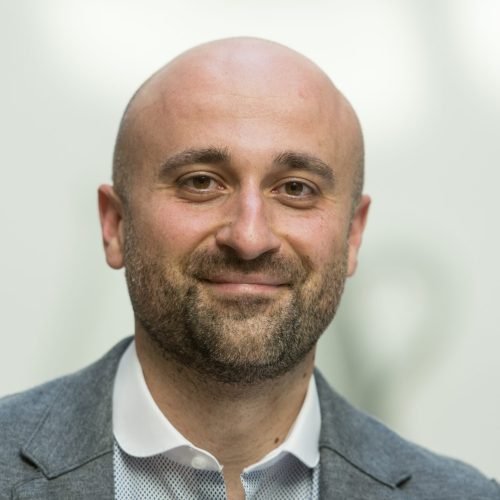
Matthias Leanza
Matthias Leanza is a historical sociologist specialising in empires, colonialism and nation-state formation and is a senior lecturer at the University of Basel. In 2017, his dissertation received the Erasmus Prize for the Liberal Arts and Sciences. In 2019, he joined the Postdoc Network of the Center for Interdisciplinary Research (ZiF) at Bielefeld University. He was a visiting scholar at the Leibniz Center for Literary and Cultural Research in Berlin, the University of Virginia and the University of Michigan. In 2020, he co-founded the Historical Sociology Working Group in the German Sociological Association.
During his fellowship at global dis:connect, Matthias will complete his current book project on the legacy of German colonialism. Drawing on a wide range of sources from European and African archives, the study shows how and why the German overseas empire helped consolidate the nascent German nation-state. Germany soon lost its colonies, but their effects on the country persisted, leaving a complex legacy.
Click HERE for a list of publications.
Click HERE to email Matthias.

Matthias Leanza
Click HERE to email Matthias.
Matthias Leanza is a historical sociologist specialising in empires, colonialism and nation-state formation and is a senior lecturer at the University of Basel. In 2017, his dissertation received the Erasmus Prize for the Liberal Arts and Sciences. In 2019, he joined the Postdoc Network of the Center for Interdisciplinary Research (ZiF) at Bielefeld University. He was a visiting scholar at the Leibniz Center for Literary and Cultural Research in Berlin, the University of Virginia and the University of Michigan. In 2020, he co-founded the Historical Sociology Working Group in the German Sociological Association.
During his fellowship at global dis:connect, Matthias will complete his current book project on the legacy of German colonialism. Drawing on a wide range of sources from European and African archives, the study shows how and why the German overseas empire helped consolidate the nascent German nation-state. Germany soon lost its colonies, but their effects on the country persisted, leaving a complex legacy.
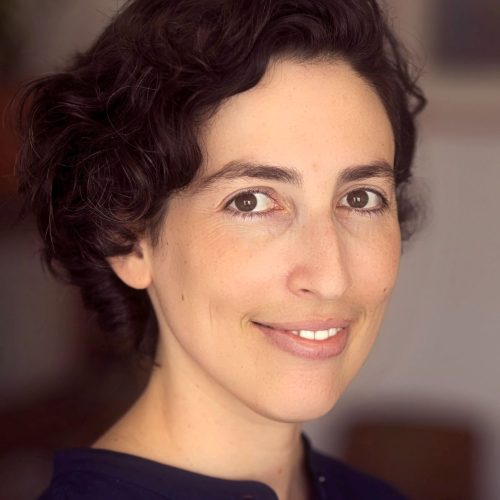
Ayala Levin
Ayala Levin is an associate professor of architectural history at the University of California, Los Angeles. Ayala specialises in architecture and urban planning in postcolonial African states with interest in the production of architectural knowledge as part of north-south or south-south exchange. She authored Architecture and Development: Israeli Construction in Sub Saharan Africa and the Settler Colonial Imagination (Duke University Press 2022), and she co-edited Architecture in Development: Systems and the Emergence of the Global South (Routledge 2022).
At global dis:connect, Ayala will research how U.S. planners sought to reorganise rural spaces in post-independence African states to curb urban migration. This project reframes conventional accounts of Third World urbanisation by directing attention to the entangled phenomenon of ruralisation, namely the modernisation of the countryside. It asks how the countryside was physically transformed to elevate standards of living, and how this transformation was employed to eradicate colonial precepts that associated modernity and social mobility exclusively with the city.
Click HERE for a list of publications.
Click HERE to email Ayala.

Ayala Levin
Click HERE to email Ayala.
Click HERE for a list of publications.
Ayala Levin is an associate professor of architectural history at the University of California, Los Angeles. Ayala specialises in architecture and urban planning in postcolonial African states with interest in the production of architectural knowledge as part of north-south or south-south exchange. She authored Architecture and Development: Israeli Construction in Sub Saharan Africa and the Settler Colonial Imagination (Duke University Press 2022), and she co-edited Architecture in Development: Systems and the Emergence of the Global South (Routledge 2022).
At global dis:connect, Ayala will research how U.S. planners sought to reorganise rural spaces in post-independence African states to curb urban migration. This project reframes conventional accounts of Third World urbanisation by directing attention to the entangled phenomenon of ruralisation, namely the modernisation of the countryside. It asks how the countryside was physically transformed to elevate standards of living, and how this transformation was employed to eradicate colonial precepts that associated modernity and social mobility exclusively with the city.
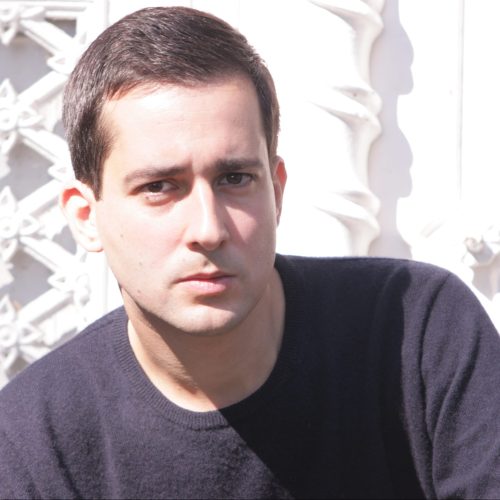
David Motadel
David Motadel is an associate professor of international history at the LSE. A former Gates Scholar at Cambridge, he has held visiting positions at Harvard, Yale, Oxford, Sciences Po and the Sorbonne. His articles have been published in numerous academic journals, including Past & Present, The American Historical Review and the Annales. His reviews and essays on current affairs have appeared in The New York Times, The Guardian, The New York Review of Books, The London Review of Books and The Times Literary Supplement, among others. He is a Fellow of the Royal Historical Society.
During his year at gd:c, David is working on a global history of Europe’s empires around the Second World War, 1935-1948, exploring the history of the war in the imperial world, its impact on colonial subjects; the history of the colonial soldiers who fought in Europe’s armies; the history of anti-colonial movements during the war, from the Viet Minh to the Quit India movement; and the war’s impact on the end of empire and twentieth-century world order. Drawing on multilingual literature and sources from five continents, the book provides a truly global view of the most cataclysmic conflict in human history.
Click HERE for a list of publications.
Click HERE to email David.

David Motadel
Click HERE to email David.
Click HERE for a list of publications.
David Motadel is an associate professor of international history at the LSE. A former Gates Scholar at Cambridge, he has held visiting positions at Harvard, Yale, Oxford, Sciences Po and the Sorbonne. His articles have been published in numerous academic journals, including Past & Present, The American Historical Review and the Annales. His reviews and essays on current affairs have appeared in The New York Times, The Guardian, The New York Review of Books, The London Review of Books and The Times Literary Supplement, among others. He is a Fellow of the Royal Historical Society.
During his year at gd:c, David is working on a global history of Europe’s empires around the Second World War, 1935-1948, exploring the history of the war in the imperial world, its impact on colonial subjects; the history of the colonial soldiers who fought in Europe’s armies; the history of anti-colonial movements during the war, from the Viet Minh to the Quit India movement; and the war’s impact on the end of empire and twentieth-century world order. Drawing on multilingual literature and sources from five continents, the book provides a truly global view of the most cataclysmic conflict in human history.

Günther Sandner
Günther Sandner is a political scientist and historian. He works as a research fellow at the Institute Vienna Circle (University of Vienna) and teaches civic education extramurally. His research includes the history of logical empiricism and Isotype. His recent publications include Weltsprache ohne Worte. Rudolf Modley, Margaret Mead und das Glyphs-Projekt (2022); Logical Empiricism, Life Reform and the German Youth Movement (ed. with Christian Damböck and Meike Werner. 2022); and History and Legacy of Isotype (with Christopher Burke, forthcoming 2023).
Günther’s project, Following Isotype: visual languages and universal symbols in the decades after 1945, deals with projects that aimed to overcome the active absence of a universal language and to establish one with the help of pictures, graphics, symbols and pictograms. Its focus is on the 1950s and 1960s. Three visual language models that interacted with each other to varying degrees are examined as examples: Marie Neurath’s Isotype (after Otto Neurath’s death), Margaret Mead’s and Rudolf Modley’s Glyphs and Charles Bliss’ Semantography.
Click HERE for a list of publications.
Click HERE to email Günther.

Günther Sandner
Click HERE to email Günther.
Click HERE for a list of publications.
Günther Sandner is a political scientist and historian. He works as a research fellow at the Institute Vienna Circle (University of Vienna) and teaches civic education extramurally. His research includes the history of logical empiricism and Isotype. His recent publications include Weltsprache ohne Worte. Rudolf Modley, Margaret Mead und das Glyphs-Projekt (2022); Logical Empiricism, Life Reform and the German Youth Movement (ed. with Christian Damböck and Meike Werner. 2022); and History and Legacy of Isotype (with Christopher Burke, forthcoming 2023).
Günther’s project, Following Isotype: visual languages and universal symbols in the decades after 1945, deals with projects that aimed to overcome the active absence of a universal language and to establish one with the help of pictures, graphics, symbols and pictograms. Its focus is on the 1950s and 1960s. Three visual language models that interacted with each other to varying degrees are examined as examples: Marie Neurath’s Isotype (after Otto Neurath’s death), Margaret Mead’s and Rudolf Modley’s Glyphs and Charles Bliss’ Semantography.






